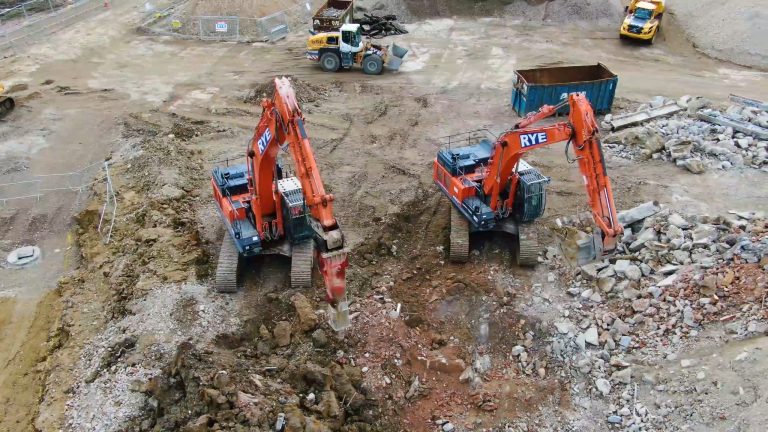This is a good time to be asking ourselves about fuel usage norms because we’re currently in the midst of a fuel-related transition period. As of April 2022, red diesel – the standard option for many organisations in the construction and demolition world – is going to cost substantially more, because it will no longer be subject to a favourable tax rebate. In other words: fuel is going to get a lot more expensive. Given that red diesel will no longer be the obvious, commercially viable choice for the industry, now is the time to reflect on whether a firm commitment needs to be made to environmentally friendly alternative fuels. This chain of thought is precisely one which the government hoped to spark off with this new policy. As the policy paper notes, this tax change is designed to incentivise “users of polluting fuels like diesel to improve the energy efficiency of their vehicles and machinery, invest in cleaner alternatives, or just use less fuel. These tax changes should therefore have a positive impact on carbon emissions and air quality.” Efforts to reduce diesel emissions are, obviously, of paramount importance. As the Environmental Protection Agency notes, diesel emissions not only produce ground-level ozone, which damages vegetation, but they also contribute to climate change – an issue which is, as mentioned above, at the forefront of our collective minds at the moment. It’s clear that a switch to environmentally friendly fuels is a good move for all concerned. However, this kind of government intervention won’t achieve this by itself. Shouldering the responsibility on an industry-wide level The issue with the government’s taxation changes to red diesel, in an environmental sense, is that they may not provide the crucial incentives named in the policy paper. Marie Claude Hemming, director of external affairs for the Civil Engineering Contractors Association (CECA), has spoken out against the supposed environmental benefits of the government’s decision. As she notes: “While the Government has legislated to remove the tax rebate on construction’s red diesel use, it has also removed any incentive for greener fuels. This policy increases tax revenues but no longer provides the option to choose lower carbon alternatives in the first instance.” Diesel might be getting more expensive, but green fuels aren’t getting any cheaper. This doesn’t mean that green fuels aren’t worth adopting, of course: HVO, to take a prominent example, produces 90 per cent lower emissions, and it’s made from renewable materials including animal oils, fats, and of course vegetable oil. Moreover, introducing fuel usage changes that prioritise HVO would minimise any disruptions to this transition, since HVO is compatible with existing diesel engines. This means that although, on paper, adopting a new fuel usage standard might seem like a big shake-up, there would be no disruptions to day-to-day equipment in practice. In this sense, then, it’s entirely feasible for the industry to adopt this kind of new fuel usage standard. Crucially, however, the construction/demolition industry itself needs to take on the responsibility of making this kind of bold change. Current government interventions aren’t quite enough – as such, the onus is on us to update our standards and take proactive steps towards a better future for our planet. By Ben Griffiths, SHE and Operations Director, Rye Group www.ryegroup.co.uk






